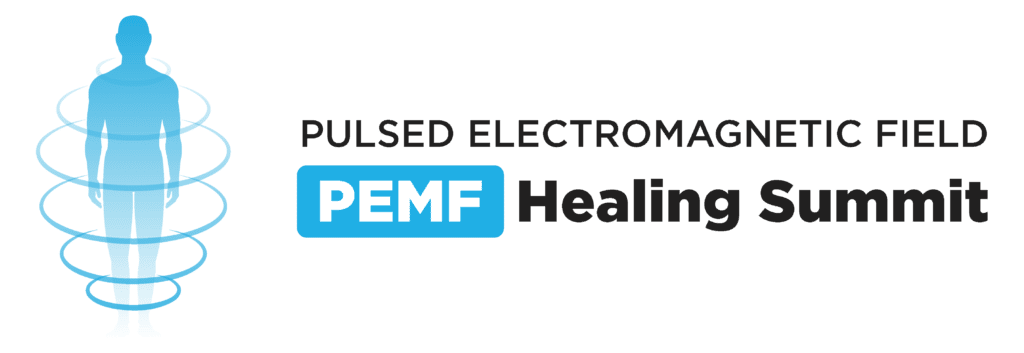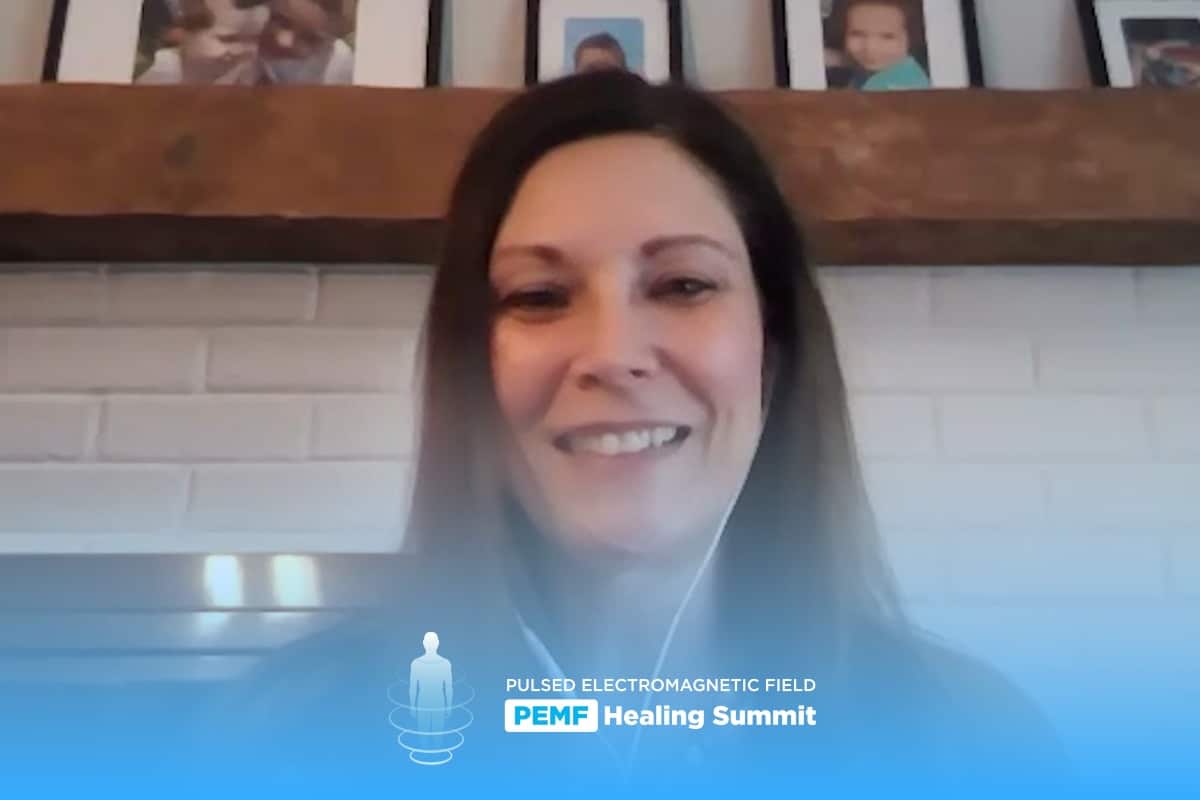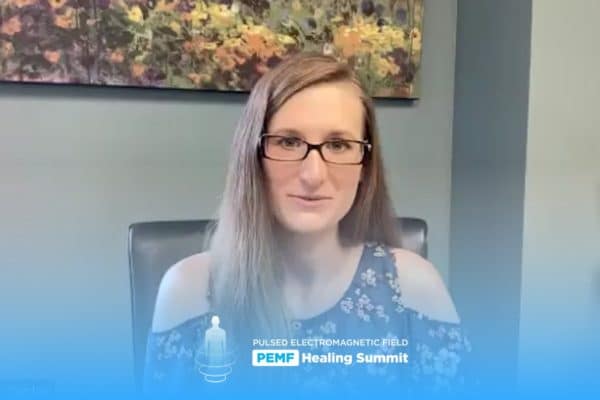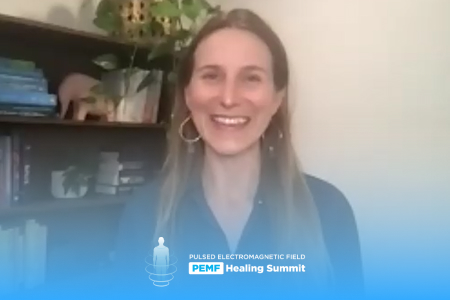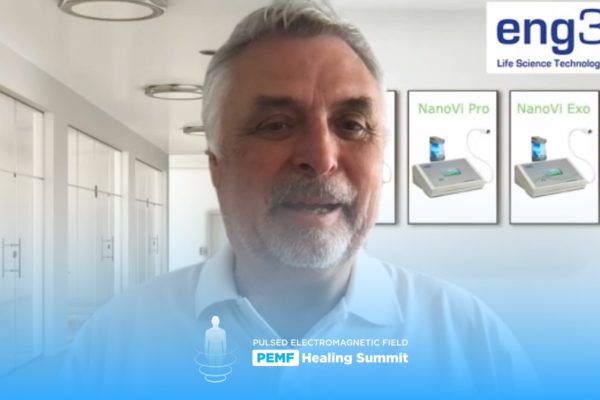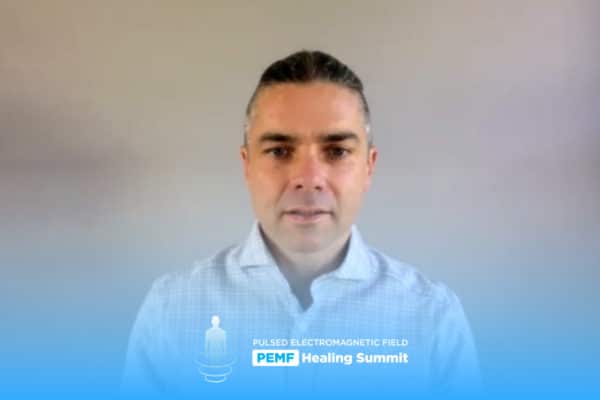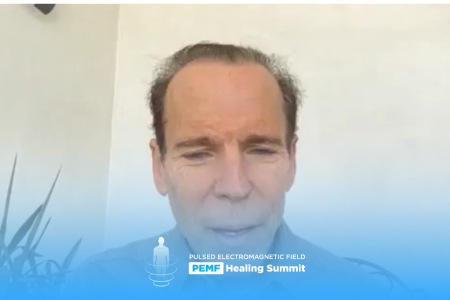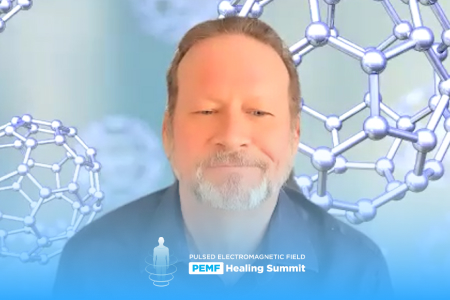Join the discussion below

Dr. Marlene Mahipat started from humble beginnings in Trinidad and moved to the United States in 1990 with $300 and two suitcases containing her entire life. Overcoming many obstacles, which included working three jobs and going to school full time, she persevered and completed her education to earn a Doctor... Read More

Dr. Stephanie Davis, DC, has been practicing Functional Medicine since 2007. She has extensive post-graduate training in Functional Medicine through the Institute for Functional Medicine, the Kalish Institute, and the Seeking Health Educational Institute, among others. Stephanie experienced her own health challenges with Hashimoto’s, infertility, eczema, mold exposure and chronic... Read More
Gut and brain health and got nervous system connections. When the gut barrier is breached it allows access into the body of various threats. Causes of the breakdown in this gut barrier: in adults – stress/PTSD/poor diet/toxins. In kids – in utero exposure, diet, infections, food sensitivities, mother’s stress. Symptoms of gut related problems include: adults – brain fog, headaches, balance issues, mood, sleep issues G.I. function. In kids – lack of focus [ADD/ADHD], skin, stomach hurting, and sleep issues. Genetics may be a contributing factor with many genes involved. Often there is a triad of asthma, food sensitivities, and skin issues. Autoimmune predispositions are common. Leaky gut is a commonly described term for breaching the gut mucosal barrier. An increasingly common source of problems is toxins in the environment. Treatments, beyond supplements and psycho emotional approaches include PEMFs, red light therapy, getting out in nature, sleep hygiene, whole food diet, and reducing EMF sensitivity. Covid has added another factor into the equation. Major dietary indiscretions include sugar, dairy and gluten. Bovine derived IgG supplements can be very helpful.
Marlene Mahipat, DC
Hello, hello, Dr. Davis, how are you?
Stephanie Davis, DC
I’m great. Thanks for having me.
Marlene Mahipat, DC
Thank you so much for doing this interview. I’m just so impressed with your resume and I can’t wait to get into this whole gut health, but before we start introduce yourself, so our listeners can get a little idea of who you are.
Stephanie Davis, DC
My name is Dr. Stephanie Davis, DC, and I’ve been practicing functional medicine for 16 or 17 years now. It’s been a long time, anyway, but before that I was a microbiologist. So very much my wheelhouse in the gut, the immune system, inflammation, things of that nature. And so that’s where I tend to focus my practice and I see adults, but I also see a lot of kids. About 60% of my practice is kids now just because unfortunately, with the way the world is now, a lot of our kids are starting to get sick earlier and earlier. So that’s my life in a nutshell.
Marlene Mahipat, DC
That is your life in a nutshell. So growing up, my parents used to always say, “Oh, you are only as healthy as your colon and more so that has be become true.
Stephanie Davis, DC
Yes.
Marlene Mahipat, DC
And so in your practice, you have also seen the importance of a healthy gut. Now, what would you say is the connection between gut and brain health?
Stephanie Davis, DC
So it’s really interesting ’cause I don’t think a lot of people think about kind of the gut and the brain as related, but they very, very much are. I think you do know. You remember in school you learn about membranes and barriers, and the gut has a protective barrier, the brain has the protective blood brain barrier, and so does the skin interestingly. And all of these are to protect us from the outside environment. And these can become compromised from inflammatory conditions, also just even stress can be a part of it, pathological conditions, if you come across just like for instance, salmonella, that could be something that compromises, usually starts off in the gut barrier where it becomes compromised. But then, it allows things that shouldn’t be in the bloodstream in there. So certain types of chemicals and proteins, you’ll often hear them referred to as antigens and you also know organisms such as bacteria, they get into the bloodstream, they incite an inflammatory response and that can lead to anything from just systemic inflammatory symptoms like just general aches and pains, all the way to autoimmunity. But the important thing here is the vagus nerve, the vagus nerve connects the brain, the central nervous system to the gut with its enteric nervous system. And you’ve got your immune chemicals, and hormones, and neurotransmitters that travel back and forth, and that it’s your gut brain access and that you can have symptoms in the gut and not necessarily in the brain or vice versa. You can have something like brain fog or lack of balance and really it’s telling you that there’s an issue in the brain and in the gut. So it’s a very connected system that’s very kind of intimately connected and people very much don’t think about that. But in essence, gut health and brain health are far very tied together.
Marlene Mahipat, DC
Right, right, right. You mentioned the gut brain access and it’s this function. What would you say are some of the common causes of this function?
Stephanie Davis, DC
It’s interesting ’cause I find anymore that the causes are becoming more numerous as compared to when I first started practicing. In adults, I think it manifests differently. And adults stress by far is probably the most common cause. Trauma, past traumas, current traumas, those are a huge factor in it. Poor diet, toxins of all kinds are becoming a major, major player. I’ve done a lot of training in kind of environmental medicine in the more recent years just because I’ve had to come up to speed on all of the various toxins in the world now it’s not just what you’re eating. It’s what you’re breathing, it’s what you’re bathing and it’s the chemicals you’re putting on your body when you put on personal care products. The whole world of environmental medicine is huge in this realm but also just kind of a big entity in and of itself. Whereas the kiddos are a little more kind of narrow in why they’re manifesting this stuff. It’s definitely gut related issues whether a lot of the moms had infections while they were pregnant and that usually ends up as either a C-section or a child that’s born with an inflammatory situation. Diet is also kinda plays into that whole realm too. Gluten and casein are two proteins that seem to kind of incite this inflammatory response. But truthfully, dietarily I see a lot of different kind of food sensitivities in these kiddos, and also for them, I don’t think parents think about stress or trauma especially in babies, but that’s a big factor as well. What I see is the mamas who tend to be more stressed out or anxious, their kiddos tend to take a little bit longer to heal as we work on both of them. I see a lot of mamas and little ones. So we’re working on both of them. And as the mamas, anxiety and stress decreases, the same happens with the baby. They’re very receptive to what’s going on in their environment.
Marlene Mahipat, DC
Right, right so I agree. What would some of the symptoms be if this blood beam brained a barrier has been compromised?
Stephanie Davis, DC
So again, it’s like adults and kids kind of have a different scenario. I would say, number one symptom in adults, brain fog. lack of mental clarity, just lack of mental agility. The ability to go from one thought to another thought to another thought or make decisions. Also headaches can be a part of that. I see adult who have balance issues, they’ll be walking around and they might hit their shoulder on a wall, or they are working out and they just notice that when they try to do something on one leg, they don’t have the same balance anymore. Also a big piece of that is mood related issues like anxiety and depression. Those are also pieces that will manifest in this. But for the kids it’s a little bit different. I would say the symptoms are not quite as profound and broad. It’s more lack of focus. They might be labeled ADD or ADHD, they also might have some anxiety. They’re also with kiddos, a lot of skin related issues. There’s gonna be ashes and eczema or other random kind of skin manifestations. And also one big thing that I also hear a lot is they say the ones who can talk, say my stomach hurts and often it’s because they can’t say and describe exactly what’s happening to them. It’s a catch all for anything that’s happening inside of their bodies. So that’s kind of the difference in what I see between kids and adults, and in both groups, you can have sleep disturbances as well Sleep disturbances are usually more profound in the adults.
Marlene Mahipat, DC
That is very interesting because in practice, I see adults as well as kids, and I have a lot of times the mothers bring the kids in and they’re like, “I don’t know what is going on. The hair is falling out. There’s the eczema. The bathroom schedule is off.” And it’s interesting that it might just be a situation of this gut and brain barrier because then it’s neurological as well as symptomatically the stomach ache and the skin. Certain people with the patients that come in, I generally see different generations of the kids. And I find that in certain families that the kids that maybe three or four of them actually have these symptoms. Is there some genetic predisposition you think?
Stephanie Davis, DC
Oh, absolutely. We know whether we’re just talking about that blood brain barrier and the gut brain access, they’re are definitely genetic components there. And one thing that I will say about this group of people in general, a lot of them do have underlying autoimmunity and or they have family history of the allergic triad, which is allergies, asthma eczema. I always call that the sliding scale of autoimmunity because the folks that have that as children often manifest in autoimmune condition as an adult if they haven’t addressed kind of all of the root causes. So absolutely, we know to manifest at least the autoimmune condition, you’re gonna have to have the environmental conditions, the genetics and that leaky gut. We’re talking about the leaky gut and the leaky brain. That in and of itself kind of sets the stage for all of that to arise. But there definitely is a subset of genetics. From on the autoimmune side, you’ve got the HLA genes, you’ve got the even and this the interleukin genes and the TNF alpha genes. Those can relate just to any general inflammation. So when you have one or two copies of certain types of those genes, you definitely have the stage set for developing anything from just general inflammatory conditions to autoimmunity.
Marlene Mahipat, DC
So pretty much what I’m hearing is, there is a con connection between this leaky gut and autoimmunity. Tell us a little bit more about that and how would one be able to identify that this might be water right.
Stephanie Davis, DC
So when I see a patient who comes in and I suspect autoimmunity, one of the first things I do is go in and check the family history. Like I mentioned before, do you have family members with autoimmunity, or allergies, asthma eczema? A lot of these patients I do run genetics on, I do look at the HLA genes. That’s not necessarily set in stone. A lot of the people who do have copies of the Interleukin genes or the TNF alpha genes, even some of the kind of nutrient related genes too. You’ve got your omega fatty acids. That’s huge for inflammatory modulation. Vitamin D, vitamin A. All of the collective methylation SNPs, not just MTHFR, but MTR and MTRR, CBS, all of those. There’s a lot that goes into this. And I would also say, you’ve got your general inflammatory genes also like C-reactive protein. It is something you can measure in the blood, but it’s also a gene that you can look at. There’s a lot that I look at when I’m kind of looking at this big picture. And then another big component is the environmental factor because we know in order to manifest that autoimmune condition, you have the genetics, you have the leaky gut, and then the environment is typically they say, pulls the trigger. That’s something that’s become well known now. And so that’s what I’m looking at. What are the environmental factors contributing? Quite frequently, there is kind of the stress chemicals, in the body, you’ve got hormone imbalances often GI related stuff. I’d say that’s often one of biggest piece of the puzzle because we eat so frequently throughout the day. And so your body has many opportunities to respond to those food related antigens or proteins. And then again, toxins from what I’ve seen in the last five years in my practice, there’s been a big shift to that being a significant environmental root cause.
Marlene Mahipat, DC
Right, right. So for parents who are concerned that their child may possibly have this, what kind of things are they looking for?
Stephanie Davis, DC
So again, kiddos who might struggle with focus, ones they might be anxious. Another piece that I often see is they will say, “My kid was fine one day and then the next day, they started having some aggressions or irritability. Things of that nature.” Anything happening on the skin, usually, kiddos seem particularly susceptible to things arising on the skin and also just kind of that allergic type of symptoms either with like a runny nose, watery eyes, that type of stuff, and sleep related issues. A lot of times the kids don’t have overt GI symptoms. And I would say, this is true of a lot of the population, but kiddos often don’t have GI related symptoms. There’s I would say infrequent things like gas and bloating. Stools tend to be pretty normal in most of these kids, if anything, they might tend towards constipation, not diarrhea, but yeah, the GI symptoms are not quite as prevalent in these kiddos.
Marlene Mahipat, DC
That is actually very interesting that there is such a difference between the adult population and the kids.
Stephanie Davis, DC
Absolutely.
Marlene Mahipat, DC
So what are some of the biggest differences that you would do if you had to pull about three or four things, what would you say the biggest difference is between the manifestation of this in adults versus children?
Stephanie Davis, DC
The adults most definitely have the GI symptoms and I usually chalk that up to life history and especially the role that stress and cortisol and that whole aspect plays in GI health. I think adulting is hard. So yes it is. We’ve got a lot of balls in there and it’s often hard to juggle. And a lot of what I see in my practice is women and children and women we have an extra job. If you have kids, you’ve got an extra job. You run your household, you manage your children and you know is a lot of women are working. You’re managing life. So there’s a lot there. So I would say that stress factor and GI symptoms are probably much more significant in the adult realm as opposed to the children. Another factor that may be more, I would say, adult is that sleep disturbance. And again, I think this also ties into the kind of stress factor and what happens with cortisol levels and how it affects serotonin, melatonin and all the other hormones. I think that that is a huge piece of the puzzle too. And if you’re not sleeping, you’re not healing and not your body is not regenerating. So I would say those probably the three most distinct factors.
Marlene Mahipat, DC
So now we know what to look for some of the causes. What would you say would be some of the solution to that?
Stephanie Davis, DC
So I would say first and foremost, I think working with a practitioner to identify the root causes is huge because a lot of people that I see have tinkered with their diet and also tried some therapies that they’ve read about online. And lots of times they do make some headway, but working with a practitioner, doing the right, kind of testing and identifying of the root causes. And I think testing the biochemical and physiological testing is important, but also I think analyzing the stress and analyzing the traumas are really, really significant. The longer I practice, the more I see where the past traumas are incredibly significant too, especially this patient population, We tend to hold traumas in our body and if they aren’t dealt with, they just kind of manifest and perpetuate. So I’d say, that’s a big piece of the puzzle. And then also if you’re just looking for things to try to get the ball rolling, I really, really love things such as PEMF, I like red light therapy, things that are gonna stimulate mitochondrial function, because that’s something that I do find on the testing. And then just listening to people symptomatically. Their mitochondria are very challenged. So their energy levels are challenged. That’s where that brain fog and the fatigue, and muscle aches and pains come in. So using that red light therapy and that PEMF can really, really help get that stuff going in the right direction. Also I always tell people simple lifestyle factors, Get yourself outside in the sun, especially early in the morning to help set that circadian rhythm, get your hands in the dirt, get out in nature. All of that stuff is really, really, really gonna help. Give yourself a good bedtime and make sure you set the stage for sleep. Dietarily, just without even getting into the nuances of all the diets out there, eat a whole foods diet, a clean whole foods diet. Organic when possible. I know not everybody can do that, but lots of fruits and vegetables, whole foods, that’s gonna help get you going in the right direction. There are lots of little things you can do to help get the ball rolling in the healing process.
Marlene Mahipat, DC
I find that very interesting because I think people have a certain understanding about each piece of those, but I learn an expression today and I’m gonna use it and I love it. It’s the layers, the onion,
Stephanie Davis, DC
Yeah it’s like the onion.
Marlene Mahipat, DC
It’s the layers onion. So it’s not just one solution but it’s layers, It’s layers and the problem sort of started I guess, the same way because it’s layers have different things because from what I’m hearing is not one thing caused it, but many things caused it. And then I guess a different solution and PEMF is amazing because one of the biggest reasons people use it is for inflammation. And a lot of this is inflammation and you if you can reduce the inflammation, then the body’s able to sort of heal itself and settle down. So what is your personal experience with this leaky gut, a brain fog episode? What is your own personal experience?
Stephanie Davis, DC
So I myself, interestingly I would say I probably have had a leaky gut for a very long time but as practitioners, we tend to ignore things. I would say my first experience actually identifying it was right after the birth of my son who’s actually gonna be nine next week, probably six months after his birth, I went through a very, very stressful experience with work and some other life related issues and it was kind of interesting because I was also living in a moldy house and it did not dawn on me that the mold was playing a factor, but I started getting some weird neurological symptoms. I felt like I couldn’t think. Word recall was hard. Like I was talking about having that mental agility, moving from one thought in a category to another thought in a different category was really hard. I noticed I was sensitive to EMF. So when I would go into a place that had lots of EMF, literally, my brain would almost shut down. It was very interesting. And then I had horrible eczema and interestingly, not a lot of GI symptoms. GI was pretty normal. I would have the occasional kind of gas or bloating, but nothing profound. It was not a daily occurrence. And I did my own testing then and it was literally a leaky gut. The signs of leaky gut were all over. Actually at that point, I was still measuring things like zonulin. I don’t do that in my practice anymore. You can tell when somebody has leaky gut and is it worth it to add that extra $50 onto a test more than likely not.
So unless somebody really wants to see it I don’t test for that, but I did at that point and it was a newer test on the scene. I had the leaky gut, I had rampant dysbiosis with lots of opportunistic infections. I had things like pseudomonas and stuff and klebsiella lots of the bad guys. I did and my testing did not show for candida, I actually treated myself for candida because I knew I was kind of living in that moldy environment. I knew that I had an issue there. And then I all also tested myself for Epstein-Barr virus at the time because of the neurological symptoms. Not necessarily at that moment in time putting the connection to the blood brain barrier and the gut and the vagus nerve and all that. So that was kind of my first foray into all of this. And I treated all of that over time and I was in a really good place until I moved out of the moldy place was good for several years. And then ended up couple years back moving into another moldy house, which course you can only do so much when you do the inspection for a house and the house looked great. We even had a mold inspector come in and he did not really find much of anything.
He had remnant water damage but he did some testing and did not see anything, but we ended up having mold in that house and for me mold is a major trigger and a mycotoxin. So I ended up going through this all again, and then COVID hit. So that kind of played a role in it for me as well. So I would say I’m probably 90% at this point. Having had COVID kind of triggered some things, but again, for me it’s not a lot of GI symptoms. I’ll do GI testing and it’ll come back looking not great. And then it’s really interesting how all of this happens, but a lot of my colleagues and I who are kind of in the space treating these types of patients kind of have this little joke and it’s about celiac from the standpoint of we kid around saying it should have been basically identified by a neurologist or a dermatologist and not a gastroenterologist because statistically in the research, more people manifest symptoms outside of the gut than inside of the gut and it’s usually the brain and the skin. And I feel like that speaks volumes to what we’re talking about. A lot of these symptoms are not necessarily GI symptoms.
Marlene Mahipat, DC
Right, right. And I agree. I have a patient who developed vitiligo like face and hands and nobody can figure out what was going on. And actually he was diagnosed as leaky gut. Which leaky gut, the layperson listening would think is something with your gut and it’s gonna be a GI thing and you’re right. Absolutely, it’s this other manifestation.
Stephanie Davis, DC
Yeah, skin and the skin in the brain are often where these GI issues are happening.
Marlene Mahipat, DC
Right, right. So if you had to give some advice to just the moms and just the general population, but more so your passion seems to be children and children can’t tell us when something is wrong. If you actually had to give some advice to moms in regards to children and how to safeguard them and what to do.
Stephanie Davis, DC
I would say, try to make your household and your environment as clean as possible. If you want, there’s a lot of things you can do, air filtration in your house. You can buy just air filtration units. You can do whole house air filtration, similar with water filtration. You can do like a sink unit or just a little kind of countertop unit. You can also do kind of whole house units and clean products, personal care products like lotions and shampoos, and try to buy the cleanest versions you can. Also cleaning products. Similarly, buy the cleaner versions of those. And diet. Diet is a huge, huge piece. Like I said before, kind of buy organic or better when you can grass fed and pasteurized meat, that type of stuff. Always do that when you can and stick to whole foods. I think it’s hard to strike that balance with diet. My kids are a great example. It’s like they kind of have this paleo. I made all their baby food. They had a super healthy diet and then they go to school. They’re exposed to the rest of the world. So for me, I’m at a point I’m not super over the top restrictive on certain things because I know that can lead to eating disorders or orthorexia or things of that nature. So I try to strike a balance. My kids don’t eat gluten and they’re very limited on dairy. So when a kid at school has a birthday, I give them a different kind of treat.
Like there are these muffins that you can get at Costco that are zucchini. They’re chocolate zucchini muffins, and they’re zucchini actually. So I give them one of those, I try to find swaps when possible. On holidays when there’s a lot of candy or sugar, we do Halloween, we do the switch which we we swap out the candy for like a toy or an event that they wanted to do, or I even told them on Valentine’s day, they’re do the candy, the school that they go to right now does candy. And I’m not a super huge fan of that, but I said, “If you bring me home, the candy, I’ll get you a little something. So they were both very excited, and on board with that because the more I can keep them away from sugar and processed foods, the better because sugar is so inflammatory, but so are all the additives and chemicals and preservatives. So those are just lifestyle things for your kiddos and obviously I think this one’s kind of a given, but show them lots of love and affection and have family time because that is a huge, huge piece. A lot of the adults I see, they didn’t have that as kids. They didn’t feel seen or heard or secure. So just all of that is kind of what I would say. Kind of the manual for moms is kind of lifestyle, keep it as clean as possible and lots of love.
Marlene Mahipat, DC
What about supplements? Well, what are your thoughts on supplements?
Stephanie Davis, DC
Obviously, I use a lot of supplements in practice and the supplements, I try to use them as especially in kids judiciously because they have an amazing capacity and resilience to heal when they start getting the right things going in the small amounts in the right direction. A lot of what I start off with is are things that are kind of general inflammatory decreasing, or immune modulating before I get testing. So things like if they don’t take vitamin D or if they’re vitamin D deficient, ’cause I actually do vitamin D testing on kids and most of them are deficient. So I do vitamin D often with K and sometimes A and E, the fat soluble vitamins together because those from an immune standpoint, very helpful, also helpful for leaky gut. So that’s something that I can give a child right off the birth. I use some of the immunoglobulins. So the IGG products. So a lot of times those can help get the kiddos going in the right directions with regard an inflammatory standpoint and also addressing kind of leaky gut and the leaky brain. And I also use a lot of the fish oils specifically, like the SPM or the PRM fish oils because those are not in a liquid form. I have the parents cut off the top of the capsule and put it in a smoothie or apple sauce or something like that. Those are specifically concentrated fish oils that address very much kind of the inflammatory process. And also in the realm of autoimmunity too.
Marlene Mahipat, DC
Right, right absolutely. The field that you’re in and the topic is so much needed with especially now with COVID and kids were homeschooled for such a long time and environments may not necessarily the best environment but this is very interesting and thank you so much for doing this and doing this interview. If people wanted to reach you, do you do any sort of like telehealth?
Stephanie Davis, DC
I do. You can go to my website is drstephaniedavis.com Super easy, super easy to remember and you can find out all of the information there. There’s also tools and things of that nature that they can find there as well that could kind of help them figure out what direction to go in with regard to treatment or things that they might wanna do like a little self assessment tool.
Marlene Mahipat, DC
Stephanie, that is that is fantastic. Well, thank you so much Dr. Davis for doing this. And I would make sure that my patients also reach out to you because I’m sitting here thinking at least five.
Stephanie Davis, DC
Oh, wow.
Marlene Mahipat, DC
At least five, that I have somebody that drives all the way from Pennsylvania two hours to come here because the kid is a year and a half and goes to the bathroom every 10 days. It’s bad skin and hair loss. So that is gonna be the first person that is going to be reaching out to you.
Stephanie Davis, DC
Oh, well, thank you so much. I appreciate that. Yeah, I love working with the kids because just they’re amazing, amazing little people and they have such a capacity to heal and it’s nice also when you work with the kids because a lot of what we do translates to the whole family.
Marlene Mahipat, DC
It really does. So thank you so much Dr. Davis, and you enjoy the rest of your day. I know you said mornings work well, and I’m so glad we were able to get this in the morning when you had energy.
Stephanie Davis, DC
Right, right Exactly. Well, thank you so much for having me. This was great and I also have to say I use that onion analogy with my patients a lot because I think it’s a great visual tool. You can imagine.
Marlene Mahipat, DC
It is my new favorite analogy.
Stephanie Davis, DC
That’s a great one.
Marlene Mahipat, DC
Thank you so much, Dr. Davis.
Stephanie Davis, DC
Thank you.
Downloads
